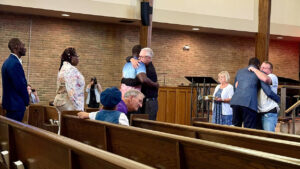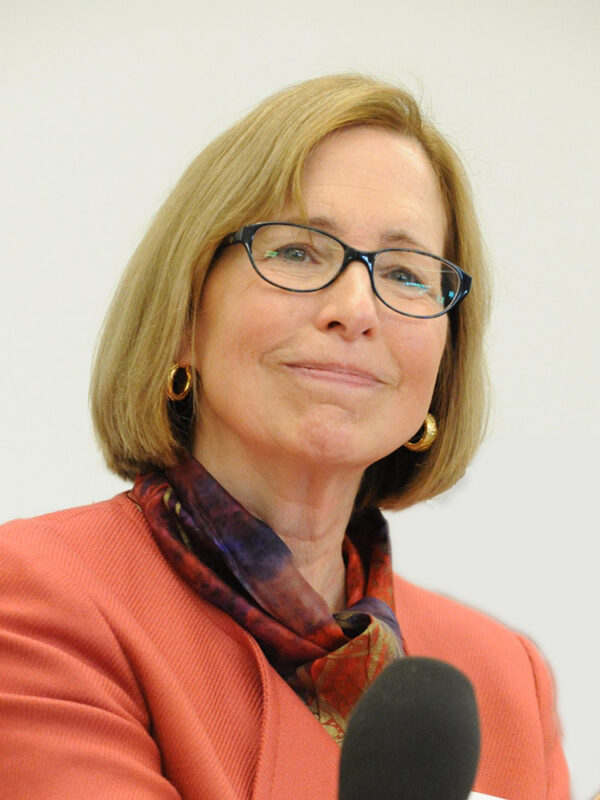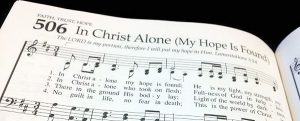Evangelicals for Harris ad prompts threat of lawsuit
CHARLOTTE, N.C.(RNS)—The political ad begins with a clip of renowned evangelist Billy Graham, wearing glasses, a gray suit and tie, leaning in toward a pulpit.
“But you must realize that in the last days, the times will be full of danger,” Graham declares. “Men will become utterly self-centered and greedy for money.”
Suddenly, a clip of former President Donald Trump is spliced in. Standing before a row of American flags at a campaign rally in Des Moines, Iowa, Trump says: “My whole life I’ve been greedy, greedy, greedy. I’ve grabbed all the money I could get. I’m so greedy.”
For the next few seconds, the ad, which has racked up over 30 million views, flips between Graham’s 1988 sermon, contrasting his points with shots of Trump using violent language, claiming to be “the chosen one” and talking about kissing women without their consent.
That ad, the result of a $1 million ad campaign by Evangelicals for Harris, is now the subject of a potential lawsuit from the Billy Graham Evangelistic Association, a Charlotte-based nonprofit that supports the ministries of Billy Graham’s son and grandson.
‘Cease and desist’ letter sent
In late September and early October, Evangelicals for Harris, a grassroots campaign of the political action committee Evangelicals for America, said it received multiple letters from lawyers representing the association, including a “cease and desist” letter.
An Oct. 2 letter, sent from outside counsel and obtained by RNS, threatened to sue Evangelicals for Harris on the basis of copyright infringement.
In a statement to RNS, the Billy Graham Evangelistic Association said they do not generally comment on potential disputes, but they acknowledged having communicated with Evangelicals for Harris regarding their concerns about the “unauthorized, political use of BGEA’s copyrighted video,” and said they would continue to address the matter.
“It may be worth noting that, in all of his years of ministry and across relationships with 11 U.S. presidents, Billy Graham sought only to encourage them and to offer them the counsel of Christ, as revealed through God’s Word. He never criticized presidents publicly and would undoubtedly refuse to let his sermons be used to do so, regardless of who is involved,” said the statement.
In August, Franklin Graham, president and CEO of the Billy Graham Evangelistic Association, turned to the social platform X to voice his displeasure at Evangelicals for Harris’ use of his father’s sermons.
“The liberals are using anything and everything they can to promote candidate Harris. They even developed a political ad trying to use my father @BillyGraham’s image. They are trying to mislead people,” he wrote.
“Maybe they don’t know that my father appreciated the conservative values and policies of President @realDonaldTrump in 2016, and if he were alive today, my father’s views and opinions would not have changed.”
In response to the threatened lawsuit, Evangelicals for Harris released a statement saying Franklin Graham is taking a page from Trump’s playbook by trying to silence the group through legal action.
“Franklin is scared of our ads because we do not tell people what to do or think. We merely hold Trump’s own words up to the light of Scripture, the necessity of repentance, and Biblical warnings against leaders exactly like Trump,” they wrote in a post on X.
Group defends use of video clips in ad
The lawyers representing Evangelicals for Harris also released their formal legal response to the threatened lawsuit.
Originally sent on Sept. 28, the letter asserts that the ad does not constitute copyright infringement or violate the Billy Graham Evangelistic Association’s right.
They write that the public discussion of Trump’s moral failings is “essential First Amendment expression,” and the use of Billy Graham’s sermon is protected under the Copyright Act.
“EFH will not be removing the ‘Keep Clear’ advertisement in response to your demand. The advertisement is a transformative, noncommercial use of less than two percent of a widely disseminated video, aimed at a market that BGEA (Billy Graham Evangelistic Association) was prohibited from targeting,” the letter says.
Evangelicals for Harris was founded by Jim Ball, an evangelical minister and former head of both the Evangelical Environmental Network and Evangelicals for Biden.
Since its launch in August, the group has had more than 300,000 people sign up for information about the campaign, according to Ball. Jerushah Duford, Billy Graham’s granddaughter; Bishop Claude Alexander of The Park Church in Charlotte, N.C.; and Texas Baptist pastor Dwight McKissic of Arlington are among the group’s ranks.
Ball said the “Keep Clear” ad, named after Graham’s admonishment to “keep clear of people like that,” was inspired by a desire to rely on the biblical wisdom of Billy Graham, whom Ball considers a personal hero, and to reintroduce young people to the evangelist.
“We’ve never had a situation where a single individual has threatened democracy and the rule of law like Mr. Trump has,” said Ball. “We’re also hoping to provide a witness to others that love should be at the heart of how we look at politics.
“How are we called to love our neighbors in the public square? We think hands down that Kamala Harris is the candidate that everyone should be voting for on that regard.”


 The letter connected the policy to recent proposals by Trump to enact the “largest deportation” in U.S. history.
The letter connected the policy to recent proposals by Trump to enact the “largest deportation” in U.S. history.

 The report points to a possible link between those who advocate for a Christian nation and people who agree with statements such as the need to “smash the perversions eating away at our moral fiber and traditional beliefs.”
The report points to a possible link between those who advocate for a Christian nation and people who agree with statements such as the need to “smash the perversions eating away at our moral fiber and traditional beliefs.”
 “No political ideology or earthly authority can claim the authority that belongs to Christ,” the confession states.
“No political ideology or earthly authority can claim the authority that belongs to Christ,” the confession states. Phil Vischer, co-creator of VeggieTales, not only endorsed the statement, but also created an animated video—
Phil Vischer, co-creator of VeggieTales, not only endorsed the statement, but also created an animated video— The statement rejects the “false security promised by political idolatry and its messengers,” insisting Christians are called to lead with love rather than fear and anger.
The statement rejects the “false security promised by political idolatry and its messengers,” insisting Christians are called to lead with love rather than fear and anger.